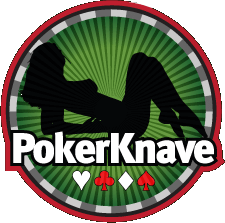Yesterday I wrote a piece about a report written by Kyle Siler about poker called School of The Bleeding Obvious.
In it I basically slammed the report called Social and Psychological Challenges of Poker for being a long tract saying in an email correspondence ‘…that being tight/aggressive and not playing too many hands is the most profitable method when playing online poker at any level, since, you cannot get any true tells on someone. However, when you play the higher stakes levels, taking reasonable risk with marginal starting hands will get you the money as long as you again do not play too many hands since everyone at that level tend to be tight/aggressive unless they are complete mugs…?’
However, an email from Kyle Siler made the point that it was not about strategies or how to win but about the nature of decision making that an online poker player has to make. He wrote ‘..The research is not necessarily dedicated to finding single best strategies or ‘rules’ for playing most profitable poker. Instead, it is looking at how people actually play, and what tends to work for people. For example, extremely skilled or unskilled players will presumably have divergent results within ‘profitable’ and ‘unprofitable’ strategies. I argue that one of the reasons that high win percentage is negatively correlated with profits (Table 11) is that as per Kahneman and Tversky, humans tend to overweight frequent small gains vis-a-vis occasional large losses. Relatedly, small stakes players have problems with middle pairs because they have problems dealing with hands of borderline value. Small pairs are more profitable for them (Table 12), even though they are weaker hands, because they generally always have a clear value (you hit your set, or else you probably fold)…’
In the end making a broad brush conclusion about this study could have been misleading if I wanted to draw conclusion about social and psychological challenges of poker, but since I just want to win as much money as I can with as little effort as I need to expend, it was always going to be understandable that I was looking for some insight which would give me an edge.
Is this a worthwhile study, I am not sure, however, I did learn a new word which is heuristics – meaning to use ‘common sense’, intuition, ‘trial and error’ to make decisions. So learning is good, therefore yes it was a worthwhile exercise because learning for learning sake means the mind used and using the mind has spin off such as mot being bored on a Sunday afternoon watching Arsenal getting beaten by Stoke City 3 – 1 in the F.A. Cup.


